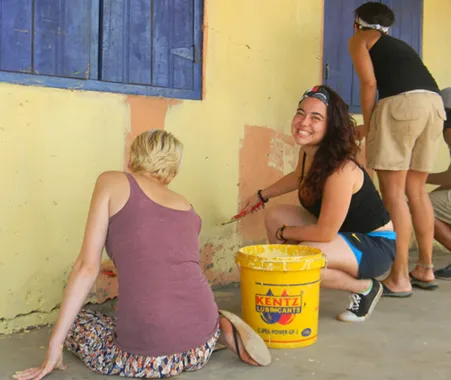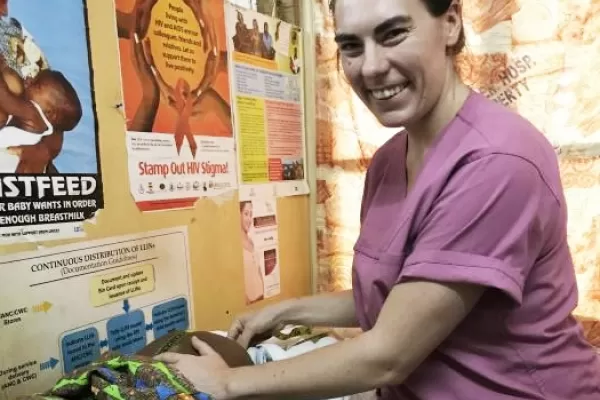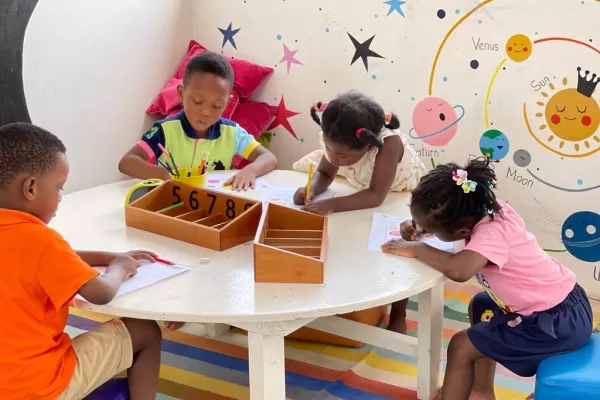Overview
Volunteers working in the Community Development Project work in village communities located 15-20 kms outside the city of Tamale. Volunteers have been working with the local villagers in schools as well as construction activities over the last few years and have made a valuable contribution. By working along with the local villagers, our volunteers engage meaningfully with their host community, understand their needs and do the volunteer work accordingly.
Participants in the Community Development Project get involved in tasks such as renovation and painting the classrooms in the village schools, development work in Girls School or any other development related projects carried out by the coordinators in cooperation with the local villagers.
The Community Development Project in Tamale, Ghana plays a pivotal role in addressing the pressing developmental challenges faced by rural communities, particularly in the areas of education and infrastructure. This project is structured around a collaborative, hands-on approach where participants, often volunteers or community members, actively engage in projects that promote long-term growth and improvements within the community.
Here’s a more detailed expansion on the specific tasks involved in the project:
Renovation and Painting of Classrooms
One of the central activities in the project is the renovation and painting of classrooms in local schools. Education is a key focus, and the goal is to create an environment that is not only physically safe but also visually stimulating for students. In many rural parts of Ghana in and around Tamale, schools may suffer from inadequate infrastructure due to limited government resources. By improving the condition of the classrooms, the project helps to ensure a better learning environment.
Tasks within this area may include:
Repairing damaged structures: This can involve fixing roofs, windows, doors, or flooring, which may be worn out or damaged due to years of use and environmental wear.
Repainting classrooms: Fresh coats of paint, especially bright and welcoming colors, can make classrooms more inviting and can have a positive psychological impact on students and teachers.
This work directly impacts the daily lives of students, teachers, and the broader community, improving the functionality of the school while fostering an atmosphere conducive to learning.
Development Work in the Girls’ School Project
A unique and equally important aspect of the project focuses on the Girls' School development. Education for girls, especially in rural Ghana, can face various barriers. Gender disparities in education often lead to fewer girls completing their schooling due to issues such as early marriage, cultural practices, poverty, and lack of safe facilities.
The development work in girls' schools is crucial to tackling gender inequality and empowering young women to pursue their educational dreams, thus contributing to broader social and economic progress.
Volunteers primarily help in renovation work of existing classrooms in Girls School Project or help out in building additional facilities as well.
Collaboration with Local Villagers
A distinguishing feature of the project is its strong emphasis on collaborating with local villagers. Community-driven development is more sustainable when the local population is involved at every stage. By working alongside villagers, the project ensures that the development efforts are not only relevant but also sustainable in the long term.
Key elements of this collaboration include:
Community-driven decision-making: Local villagers are involved in planning and decision-making, ensuring that the project aligns with their needs and priorities. This might involve regular meetings with community leaders, teachers, and parents to determine which areas of the schools or community require the most attention.
Shared labor and resources: In many cases, the villagers contribute their labor, materials, or tools to the project, ensuring that it is truly a community effort. This participation also fosters a sense of ownership and pride in the success of the project.
This kind of cooperative effort not only strengthens the community but also creates lasting bonds between the volunteers and local villagers, contributing to mutual respect and understanding.
Impact of the Community Development Project
The community development project in Tamale is designed to have a lasting impact on the local area, not just by improving infrastructure but also by contributing to the overall development of the community. By improving education facilities, especially for girls, the project creates more opportunities for future generations. The emphasis on local participation ensures that the community takes ownership of the improvements, which increases the likelihood that they will continue to thrive even after the external volunteers or project teams leave.
Volunteer Work Schedule
Volunteer Work Schedule
Volunteering Solutions provide accommodation in Tamale with a local host family. The schedule for the volunteers remains as follows;
Saturday - Arrival at Tamale and transfer to accommodation
Sunday - Settling down in the area and orientation by coordinator
Monday - Visit to the project with the coordinator and starting your volunteer work at the placement
Tuesday to Fri - Volunteer work
Breakfast - 06:00 am onwards (provided at the accommodation)
Working hours at the placement - 07:00 am to 01:00 pm and 3:30 pm to 5:30 pm
Lunch - 02:00 pm to 03:00 pm (volunteers need to manage lunch on their own)
Dinner - 06:30 pm to 07:30 pm (provided at the accommodation)
The same volunteer work schedule continues from the second week onwards
Weekends - Free to explore the city and take short excursions trip to some of the best hotspots in and around Tamale, such as; Mole National Park, Monkey Sanctuary, Kintampo Falls. Learn about their elaborate festivals, the local cuisine comprising of Banku and Fufu - Ghana's most famous dishes, their colorful dresses, and the music and dances.
Note: Please note, the schedule may vary depending on the particular project the volunteer is participating on.
Volunteer Roles & Responsibilities
Volunteer Roles & Responsibilities
Under the community development volunteer program in Ghana, volunteers have the option to work for several different projects. A day to day work for the volunteers under this program would include;
On weekday mornings, volunteers work in the Girl's Education Project or in local schools in the village.
Volunteers assist the Ghanaian teachers by working with small groups of students on their English and math skills.
Volunteers can assist in any new building tasks assigned by the local coordinator. Assistance of local laborers will also be provided.
Volunteers work along with local villagers and can do the painting or renovation work in the school building.
Project Requirement
Project Requirement
Volunteers must be 17 years or older at the time of joining the project. You need to have an open mind and a flexible attitude for working in a new and different environment. The volunteer should bring energy and enthusiasm to make a difference and should be willing to work outdoors and get their hands dirty. Participants must be fit and healthy at the time of joining the program. Participants should have no criminal convictions and should provide a clean criminal background check report.
Schedule a Google Meet with a Program Advisor
Interested in our programs? We're here to provide expert guidance
- Get Detailed Info
- 20 min One -on-One meeting
- Get expert advise
- Application Guidance
Photo Gallery

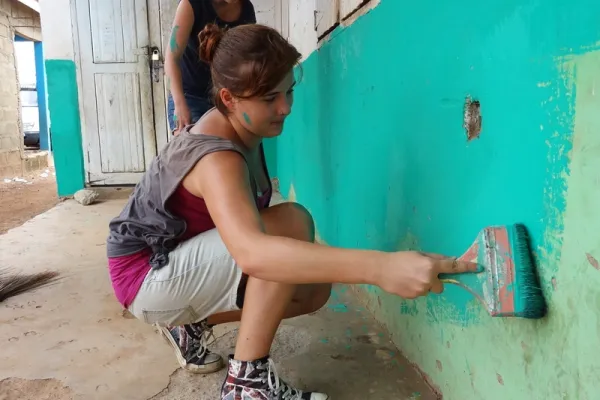
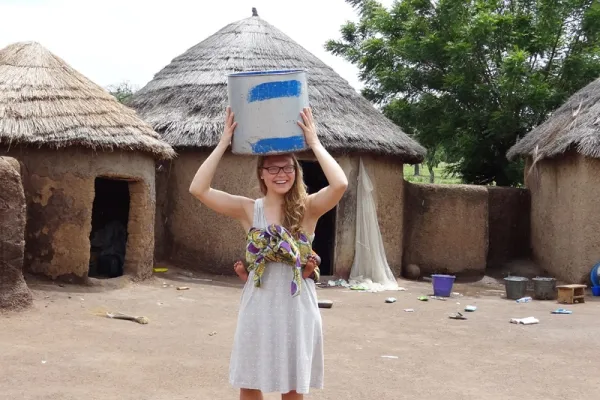
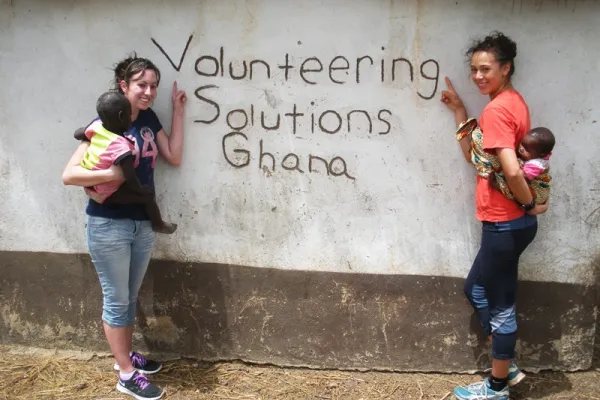

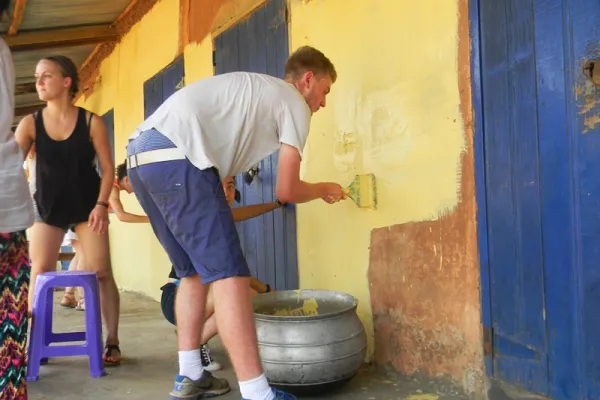
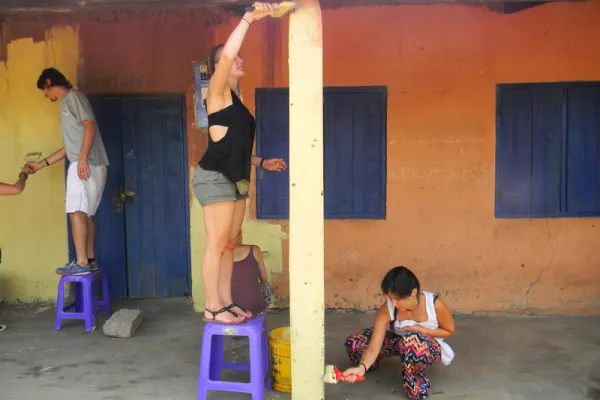
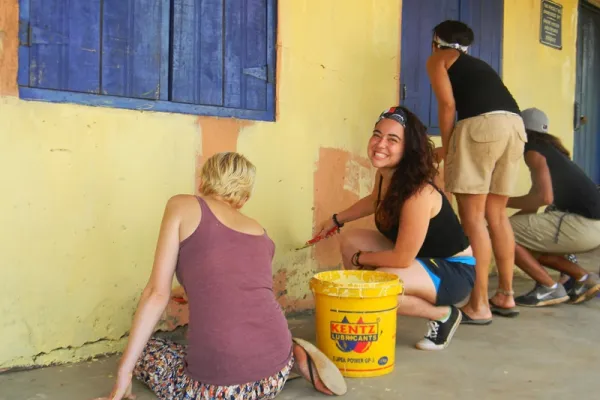
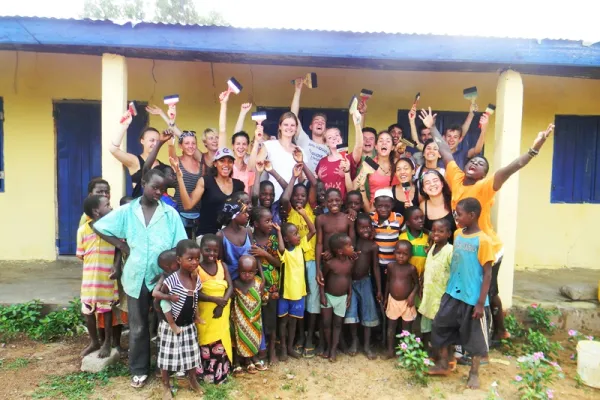
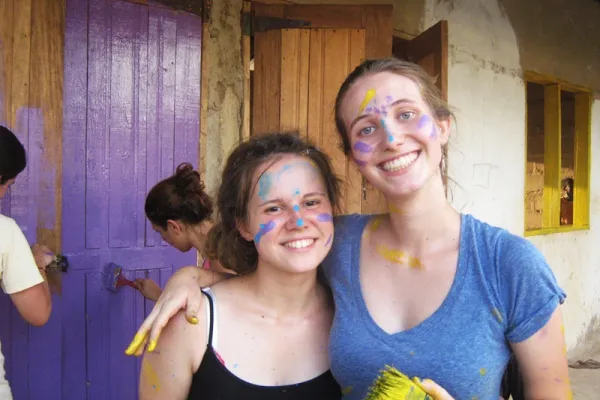
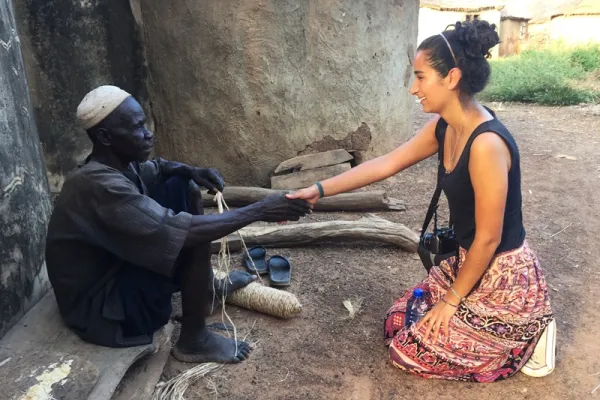
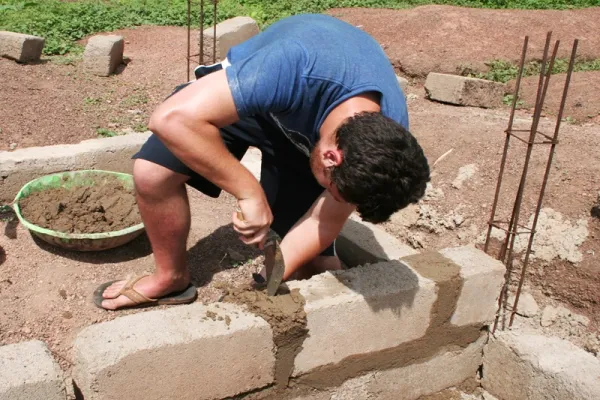
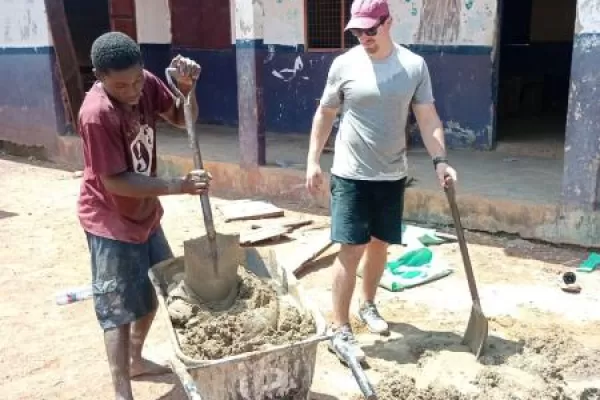
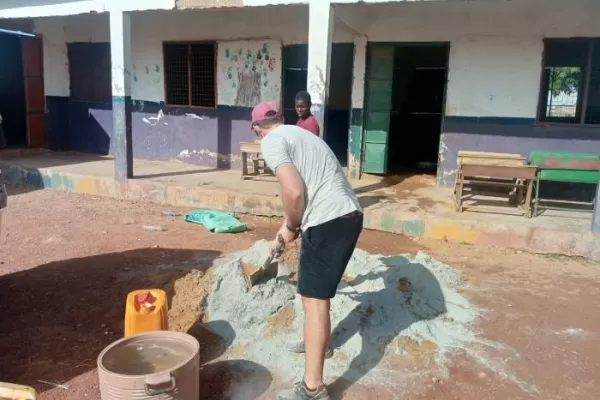
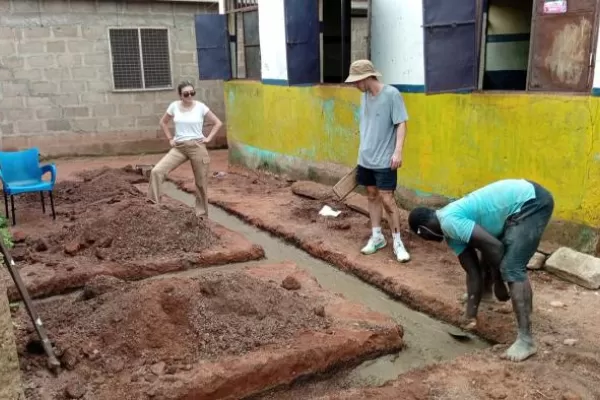

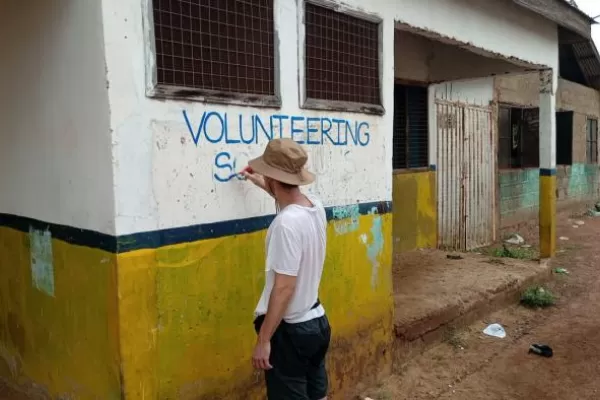
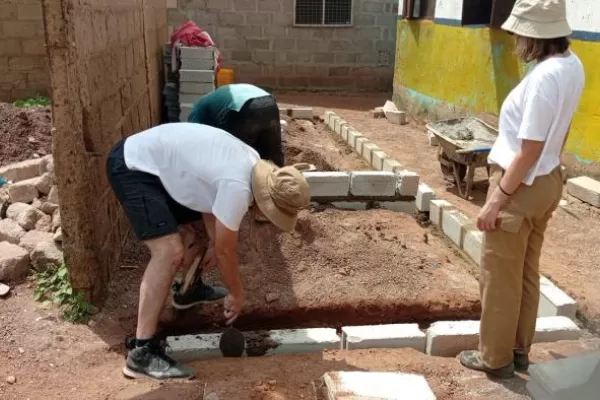
Living
Living
Volunteering Solutions strives to provide best of the living and other arrangements to its volunteers. Like we keep saying, just pack your bags and arrive at your placement destination. From your airport pickup, stay, meals, weekend tours and other nitty gritties, VolSol manages everything for you.
Airport Transfer
You will be met by your program coordinator at Tamale Airport from where you will be transferred to your project location.Participants can book your flight to arrive at Accra International Airport and then a short connecting flight to Tamale. You can also choose to stay overnight in Accra and take the flight to Tamale on the next day. We can offer an optional Accra pickup service at extra charges. The service will include pickup in Accra, one night stay in a hotel/guest house in Accra and transfer to the airport to continue your journey.
Accommodation
Volunteers will be staying at a standard Ghanaian volunteer homestay managed by the local program coordinator. In case space is not available in the volunteer home, you will be accommodated with a Ghanaian Host family. Accommodation is either provided in an individual or shared room along with other volunteer. By staying with a family you will experience the local Ghanaian culture, language customs and traditions. There are separate rooms for male and female volunteers with shared toilet facilities. Participants should note that living is of basic standard and you should not expect luxuries. Power cuts are common in Ghana and most rural houses do not have running water during times of drought. Bedding is provided, however, volunteers need to bring their own towels and mosquito nets (these can also be purchased in Ghana). Air conditioning is available in the volunteer house and the participants need to pay the extra charge to avail the facility in the country.
Orientation
An orientation and briefing session will be provided by your local coordinator. Areas like culture, safety, locations, transportation are covered in the Orientation. After your orientation is over, you will be introduced to your project and also given a tour of the local market and town of Tamale.
Meals
Volunteers are provided with 2 meals (breakfast and dinner) at the host family house. Ghanaian cuisine consists primarily of starches, soups, beans, meat, and fish. The Starches consist mainly of rice and doughy balls made from mashed cassava, plantain or yams. Famous Ghanaian dishes include Banku and Fufu.
During your Free Time
On the weekends you can head out to explore places such as Mole National Park and Monkey Sanctuary. Volunteers also visit Paga to visit Crocodile Park or further south to Cape Coast to enjoy the beaches. On weekdays, participants have free time in the evenings and spend time relaxing at their accommodation or socializing with other volunteers and the local people.
Dates
Dates
January
04
18
February
01
15
March
01
15
April
05
19
May
03
17
June
07
21
July
05
19
August
02
16
September
06
20
October
04
18
November
01
15
December
06
20
January
03
17
February
07
21
March
07
21
April
04
18
May
02
16
June
06
20
July
04
18
August
01
15
September
05
19
October
03
17
November
07
21
December
05
19
Available
Filling Fast
Booked Out
Costs
| Duration |
Program Fee
|
Choose your currency
|
|---|---|---|
| 2 Weeks | $590 | |
| 3 Weeks | $640 | |
| 4 Weeks | $690 | |
| 5 Weeks | $740 | |
| 6 Weeks | $790 | |
| 7 Weeks | $840 | |
| 8 Weeks | $890 | |
| Extra Week | $120 |
Please Note: An application fee of is charged over and above the program fee as an application payment. A 5% international banking fee is charged for credit card payments of program fee in USD/AUD.
What are you Paying For?
- 24 hrs Assistance and support from Staff
- Comprehensive Pre- Departure Information
- Airport Pickup from Tamale Airport
- Orientation
- Food - 2 meals a day
- Accommodation
- Travel & Medical Insurance (Available at an extra cost)
What's NOT Included?
- International and Domestic Flight
- Accra pickup package
- Vaccinations
- Local Transportation
- Ghana Visa
- Personal Expenses
FAQ's
Application and Program Details
-
Are there any necessary requirements to participate in the Ghana volunteer programs?
-
Every program has certain and prerequisites that are required to be fulfulled by the volunteers. Please refer to the respective program page for the detailed requirements.
-
Does VolSol provides discount if I choose more than one program or if I am a returning volunteer?
-
If you are planning to come for multiple programs in your trip, you will have to pay the application fees just once. Your application fee is valid for a year's time (from the date of application). You will not have to pay the application fees again if you come within the mentioned time frame.
For our returning volunteers, $50 discount is provided for the application fee for their next Vol Sol program. -
Can I volunteer as part of a group?
-
We encourage our participants to volunteer in a group. We take special care in providing you a placement and also customize your itinerary to make sure you get exactly what you are looking for. Also, we can design special group programs for groups of 5 or more. Our programs are designed to be safe, affordable and offer a great group volunteering experience to the volunteers.
In our experience of more than 6+ years we have enabled and facilitated volunteer program placements for student groups- college groups, university groups, high school groups, group of families, group of couples as well as groups of colleagues.
Ghana is one of our popular destination among student groups and is highly recommended for family volunteering as well. -
When should I apply for the volunteer programs in Ghana?
-
As we have limited spots available in our programs and we serve on first come first basis, it is recommended that potential volunteers book their programs well in advance to get confirmed placements. You can book your slot by filling the application form online and pay the application fee.You can pay your program fee later and also, in installments, however, the complete payment should be made 45 days prior the start of the program. If you are volunteering in a group, you can also fill a group application form.
-
What are the Program Locations in Ghana?
-
Volunteering Solutions offers projects in the capital city of Accra as well as in Tamale in Northern Ghana. Tamale is the fourth largest city in Ghana and one of the the fastest growing cities in West Africa.The Beach Conservation Project is located in Axim, which is a six hour drive from Accra.
-
For how many hours will I volunteer every day?
-
Volunteers usually work for 5 to 6 hours a day for 5 days a week depending on their program needs. You will have the weekend off to explore in and around the city. However, volunteers need to be flexible, open minded and understand that work requirements can change as well on certain occasions.
-
How long will it take to process my application? Will my application be accepted?
-
After you complete your application, your personalized ‘My Account’ will be active.You will need to upload your CV/Resume along with your photo in the same. Our backend team and the placement site takes around 10-12 days to review your application. After we review your CV and documents, your booking is confirmed and booking confirmation is updated in your ‘My Account’. Some projects need a mandatory criminal background check and the same is mentioned in the project info of your program. Approval of your application depends on your qualification and eligibility criteria for each project.
-
Does VolSol provides with a reference or a certificate after program completion?
-
Yes, we will provide you with the Certificate after successful completion of your program. The certificate is provided on request.
Health and Safety
-
How safe is Ghana in general?
-
Ghana is a safe and stable country with relatively low crime levels compared to other West African countries. You’ll meet some of the friendliest people in Ghana and their culture is a fascinating blend of traditional and modern.
However, as in any country around the world, you need to take certain precautions for safety. You will be given safety precautions and instructions by your coordinator during the orientation. -
Do I need to buy a health insurance?
-
Yes, for all volunteers it is mandatory to have a travel medical insurance. To provide the best option to our participants, we offer comprehensive insurance coverage in collaboration with a leading insurance provider.
-
What immunizations/vaccinations will I need?
-
We recommend you to consult your physician or travel doctor before traveling to Ghana. All travelers are required to carry an International Certificate of Vaccination (Yellow Card) to show proof of yellow fever immunization.
The recommended vaccinations for volunteers traveling to Ghana are as follows:
Yellow Fever
Hepatitis A and B
Typhoid
Rabies
Accommodation and Living
-
Can I know more about accommodation and food arrangements?
-
We provide a wide variety of program options in Ghana and the accommodations vary depending on the program choice.
In Tamale, Volunteers will be staying at a standard Ghanaian volunteer homestay managed by the local program coordinator. In case space is not available in the volunteer home, you will be accommodated with a Ghanaian Host family. Accommodation is either provided in an individual or shared room along with other volunteer.
In Accra, volunteers are provided accommodation in the volunteer house with other volunteers or in a host family depending on the program choice.
In Axim, volunteers stay with other volunteers as well as local staff in the Volunteer & Staff Village! There are bungalows in the village, located by the side of the beach. You'll share a room with one to three other folks. The rooms are basic but you'll be provided with all necessities.
At all project locations, two meals a day are provided to the participants.
-
Are there more expenses once I arrive in Ghana?
-
Your program fee covers your accommodation, airport pick-up, orientation, pre-departure booklet and 24x7 in country staff support. You will need to cover your personal expenses, such as traveling, telephone, the internet, shopping, sightseeing, return airport drop, weekend tours etc. You should carry around $50 - $60 per week for your basic personal expenses, such as water, local transport, phone etc.
-
Can vegetarians be accommodated?
-
Yes – please do ensure that you inform the local team about your food preference and they can help ensure you are able to order the best food! Also, please do mention your specific food preference in the application form as well.
-
Where can I change my money in Ghana? Are there ATMs in Ghana?
-
On arrival in Accra, you can change your currency to Ghanaian Cedis (GHS) at the airport. There are many currency exchange counters at the airport. Also, there are ATMs available throughout the city. Mostly Visa and MasterCard are only accepted in some parts of Ghana.
-
When do I need to arrive in Ghana for my program? What will happen once I arrive in Ghana?
-
All volunteers need to arrive in Ghana on the mentioned start dates. Volunteers are picked up from the Kotoka International Airport in Accra (ACC) by the in-country coordinator or representative.
In Accra, the accommodations are provided in a guesthouse or a hotel for a night and on the next day, volunteers take a flight to Tamale. Those who are arriving overland or are already in Ghana will be picked up at a meeting point decided beforehand.
After taking the short flight from Accra, you will be picked up from Tamale airport and taken to your accommodation by our team. You will be given an orientation about the city, placement, safety guidelines and transportation by the in-country coordinator. Depending on your time of arrival, you will be given a tour of the town and nearby amenities on the same day or the next day when you start your project. -
How do I get to the program location?
-
Your country coordinator will take you to your placement and introduce you to everyone after giving you a basic orientation about the program/city/culture etc. You will be given the directions to the project from your accommodation and will also be briefed on the mode of transport.
-
Would I have free time during my program ? Can I do sightseeing during my program?
-
Volunteers typically work for 5-6 hours in a day, for 5 days a week. However, depending on the workload every day, working hours can vary. Evenings are free for the volunteers and volunteers usually get together and go out for social gatherings, eat out or watch football games in Tamale stadium.
Weekends are free for the volunteers to explore the city. You can go for short weekend trips to Mole National Park, Monkey Sanctuary or Kintampo Falls.
We encourage our volunteers to travel. We have designed various weekend tours which can be booked under the Add-on Tours section in your ‘My Account’. You in-country coordinator will also help you book and organize the tours once you are in the country.
Flights and Visa
-
Does Volunteering Solutions help with Visa?
-
All participants joining the programs in Ghana need to apply for Visa at the nearest Ghana Embassy. Along with the Visa application, you need to attach the required supporting documents. Volunteers are provided with all the necessary supporting document for their Ghana Visa application. More information shall be provided after you enroll yourself for our programs.
-
What are the recommended airlines to fly to Ghana?
-
Kotoka International Airport in Accra has direct connections from North America and Europe. Delta Airlines, KLM Dutch Airlines, TAP Portugal, Turkish Airlines, Ethiopian Airlines, Kenya Airways, British Airways are some of the major airlines that have direct connections to Ghana.
-
How do I reach Tamale from Accra? Do I need to book a flight to Tamale?
-
Tamale is well connected to Accra having daily flights between the two cities. You need to book your flight to Accra and the connecting flight thereon from Accra to Tamale. Please get in touch with your program manager for more details.
Connect with Past Volunteers
-
How can I connect with past Volunteering Solutions Ghana alumni as well as other former and current volunteers?
-
We encourage volunteers to get in touch with former Volunteering Solutions participants and also other program participants joining our projects. You are recommended to join the Volunteering">https://www.facebook.com/VolunteeringSolutions/">Volunteering Solutions Facebook Page or Facebook">https://www.facebook.com/groups/volunteeringsolutions/">Facebook Group and connect with other participants and our team.
To read alumni interviews from past participants, visit ?thehttps://www.volunteeringsolutions.com/meet-a-volunteer">; Meet a Volunteer section on our website.


























